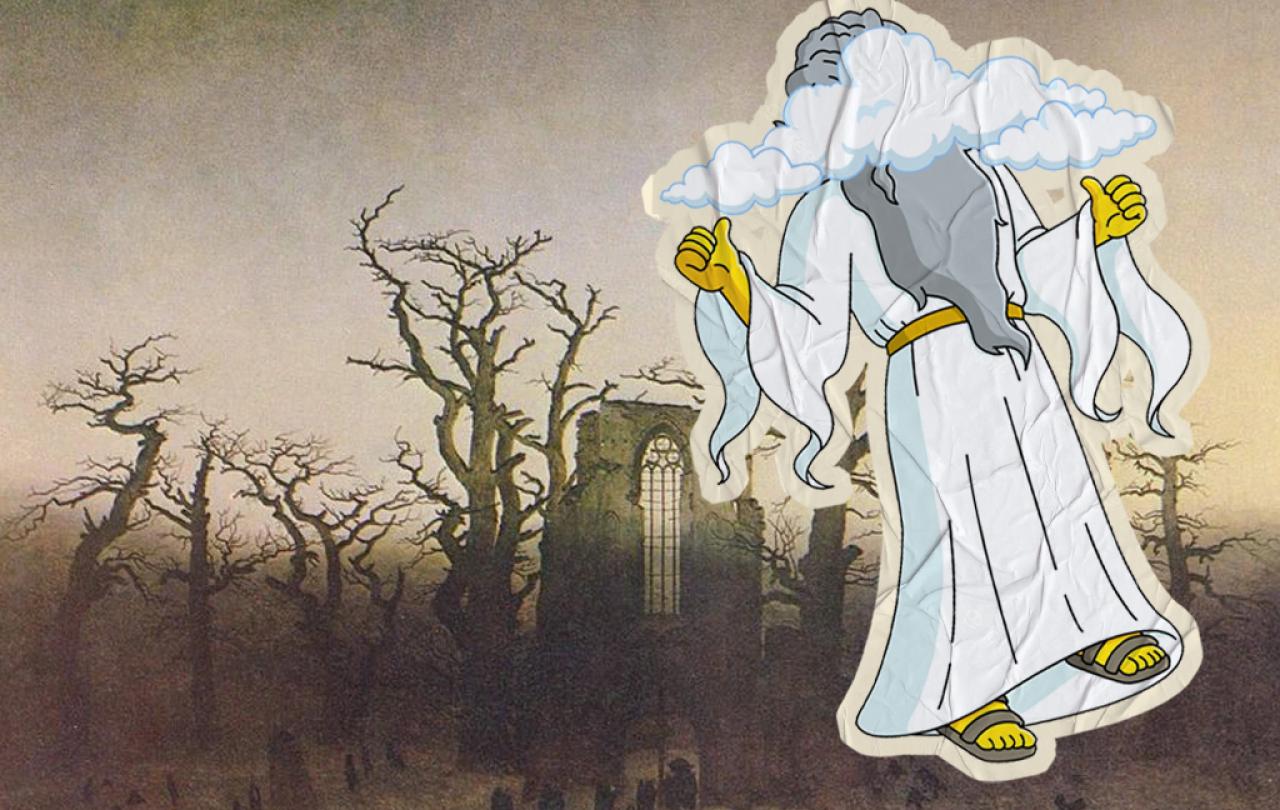My name is Stefani. I was a committed atheist for almost my entire life. I studied religion to try to figure out how to have spiritual fulfillment without God. I tried writing books on spirituality for agnostics and atheists, but I gave up because the answers were terrible. Two years after completing my PhD, I finally realised that that’s because the answer is God.
Today, I explain how and why I decided to walk into Christian faith.
Here at Seen & Unseen I am publishing a six-article series highlighting key turning points or realisations I made on my walk into faith. It tells my story, and it tells our story too.
I began having panic attacks about dying and the meaning of life when I was four years old. I would lay in bed at night and beat my head against the mattress while imagining what it would be like to stop existing. What would it be like to cease to be? I had no idea, but it seemed too horrible to fathom. I literally tore my hair out with the dread of it.
Like many people in my generation, my parents had been raised in the church but left it as soon as they were able. They raised my brothers and me completely without God or other spiritual things. I had no idea of anything beyond what we could see or touch. My first exposure to God was through the TV, as He makes a few guest appearances on The Simpsons.
As a child raised in today’s world, God was what Charles Taylor calls “unthinkable” to me. By “unthinkable” he means literally unthinkable. It was impossible for me to think God; it remains difficult for me to think God. But here’s the thing: this unthinkability of God—the sheer impossibility, the ridiculousness, the strangeness, the preposterousness of God, to me—was a bias I inherited from being born into this specific place and time.
I was pre-wired to disbelieve in God.
The thing is, every society is founded on tacit assumptions about the nature of reality. Ours, the modern West, assumes that nothing is real except for physical stuff. Philosopher Charles Taylor calls this the immanent frame. Inside the immanent frame, you can, if you like, believe in more than just what we can see and touch. But that’s a choice, and it’s one you make while others consider the things you hold most sacred as like cartoon characters lounging on clouds in the sky. Such beliefs are difficult to maintain with grace, and people often hold them with either too much timidity or too much obstinacy; many, like my parents, eschew belief altogether. This is a recipe for a tumultuous, confusing, and often unfriendly spiritual landscape.
The great existential trade-off
We are the first society in the history of societies to be founded on nothingness. A child born 500 years ago would not have been able to imagine a world without God. Back then, God was not just real but number one on the list of possibly real things. Atheism was unthinkable. God was the singular, unchanging reality upon which all material things—constantly changing and subject to decay and death—depended. You can read a little about what it was like in this review of Pentiment, an adventure game set in medieval Bavaria.
Today, faith is, even for Christians, typically cordoned off in a little corner of life, maybe squeezed into 15 minutes on a Bible app on the way to work. But back then faith was what scholar Timothy Fitzgerald appropriately labels encompassing. God was not a hypothesis to be posed, a belief into which you could opt. God suffused the world. The transcendent encompassed all.
Here’s how it flipped.
In 1451 Johannes Gutenberg invented the printing press, which made printing books faster and cheaper than ever before. New ideas about God began to spread faster than the then dominant Church could stomp them out. Within a lightning-quick five hundred years, the number of versions of the faith in Europe multiplied from one to literal thousands.
No one was prepared for the shock of it all. People began to differentiate themselves according to their beliefs, and authorities exploited burgeoning fault lines for the sake of conflict. Between 1517 and 1648, ten million people died in the Wars of Religion.






